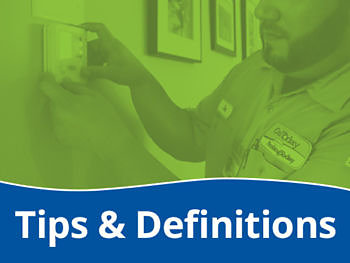How To Prepare For A Hurricane: A Checklist For Florida Homeowners

July 23, 2018
A little preparation can make a big difference when it comes to surviving a hurricane in Florida.
Since we’re in the middle of hurricane season, it’s important to make sure you and your family are prepared and know what to do well in advance of a storm.
We’ll walk you through a hurricane preparedness checklist for what to do 2 months, 1 month and 3–5 days before a hurricane hits.
First off, always stay in the know
If you don’t already, you should follow or subscribe to get emergency notification alerts in your area.
That way, you’ll stay updated on the storms and will immediately know if you live in a zone that needs to evacuated.
2 months before: Create an emergency evacuation plan
If you live in an evacuation zone, it’s important that your family has a plan of action if you need to be evacuated.
When creating your emergency evacuation plan, determine:
- Where you’ll go. You don’t need to travel across the country. Find a friend or relative that doesn’t live in an evacuation zone and coordinate with them to use their home as your family’s evacuation location. If you’re considering a hurricane shelter, be sure to find one that allows pets if you need to (most shelters don’t).
- How you’ll get there. In an evacuation, you might have a few days to prepare, or you might need to leave immediately. Research alternate routes and means of transportation to your destination, so you don’t panic or get stranded if plan A doesn’t work.
- How you’ll communicate. Make sure you have an emergency communication plan that outlines how everyone will get ahold of each other. Write down phone numbers and emails and give everyone in your family a copy.
Write your evacuation plan down somewhere and, more importantly, go over it at least once a year (before hurricane season is best). That way, everyone in your family will know what to do in the event of an evacuation.
1 month before: Build a 3-day disaster supply kit
Whether you need to evacuate home or get stuck in your house without power for a few days, a disaster supply kit will make sure you have enough supplies to survive the storm.
We recommend building your supply kit at least a month out from hurricane season, so you have plenty of time to get the supplies you need. The farther in advance you plan, the less likely you’ll hit the last-minute disaster rush, which often means out-of-stock items and price gouging.
A good disaster supply kit will have:
- 3 days worth of clean water and non-perishable for each member of your family (don’t forget about pets)
- Battery-powered radio to tune into weather updates
- Cash in case of a power outage (ATMs won’t work)
- Extra batteries
- Prescription medications
- Flashlight or waterproof matches
- Whistle to signal for help
- Sleeping bags or blankets
- Sanitary wipes and personal hygiene items
- Can opener for canned food
- Tools to turn off utilities
- Paper mess kit (cups, plates, plastic utensils, etc.)
- Local maps
- Phone chargers with a backup battery
- Important family documents (identification and SSN cards, birth/marriage certificates, copies of insurance policies, etc.)
3–5 days before: Reinforce your home
If left unprotected, a hurricane will no doubt cause severe damage to your Florida home.
Follow these steps a few days before the storm to protect your home and help limit storm damage (both inside and out)
- Trim trees and shrubs and make sure your rain gutters are clear. This will reduce the amount of loose debris that can damage your home when the winds picku
- Bring in all loose outdoor items (patio furniture, decorations, trash cans, etc.). Storing them inside your home or in your garage will prevent them from being blown away
- Protect your home’s electrical system. Follow our checklist to protect your home’s appliances and wiring, so you don’t end up losing thousands of dollars in replacing appliances
- Cover your windows. Install hurricane panels or cover windows with ⅝-inch thick plywood to protect them from breaking. Also, add a deadbolt to your doors to make them more secure against hurricane-force winds
- Keep gas tanks in your car and backup generator full. It’s also a good idea to keep extra gas on hand, as it’s not uncommon for gas stations to run out of gas before a hurricane hits. If you don’t have one, we recommend investing in a backup generator, as they can come in handy if you lose power after the storm hits
- Secure your AC with hurricane straps. Bolting your AC down with metal straps will make sure it won’t go anywhere during the storm. It’s also a good idea to cover the AC with a tarp or plywood to protect it from debris damage during the storm. (Don’t forget to turn your AC off if you do this!)
Need help preparing your AC and electrical system for a hurricane? We can help.
Just contact us
We’ve lived in Florida for more than 50 years, so we know how to make your home’s HVAC and electrical systems ready to withstand a hurricane.
Posted in: Tips